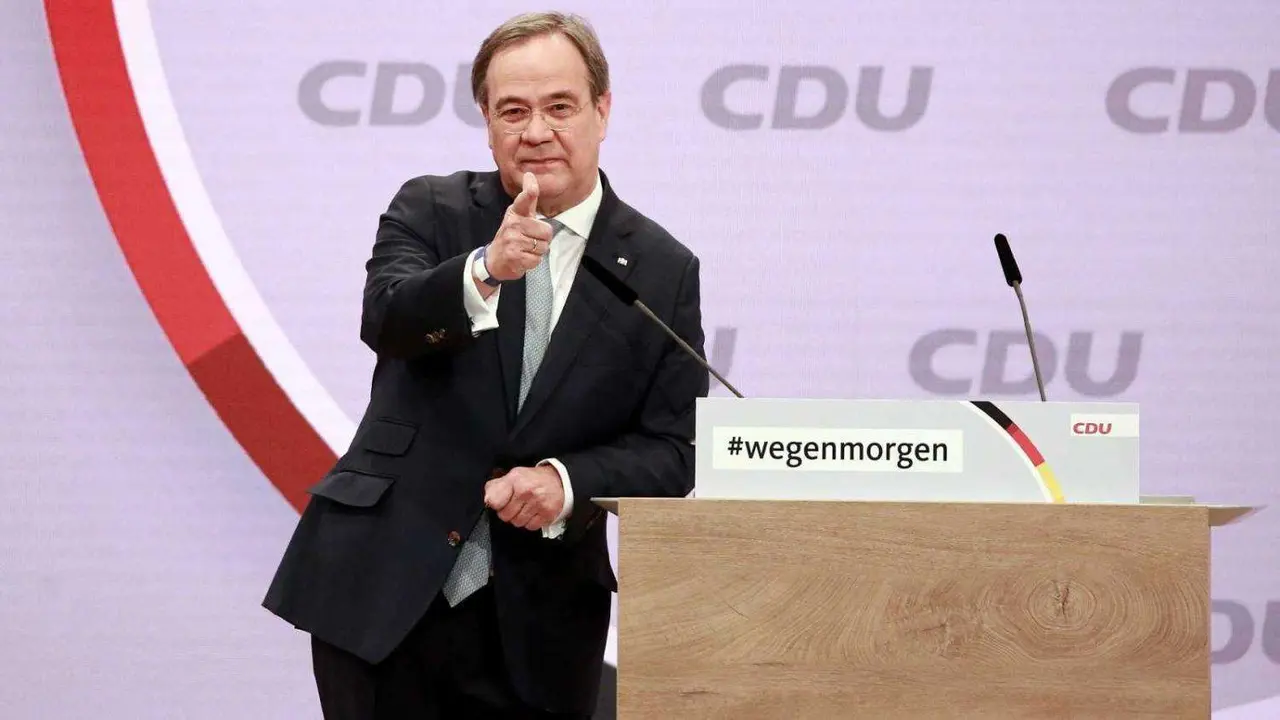No shocks in Merkel's succession, for the time being

The German Christian Democratic Union (CDU) already has a new leader, which supposedly would also make him, succeeding Angela Merkel, the candidate to take her place in the Chancellery in the elections of next September 26. Armin Laschet, the current president of the Land of North Rhine-Westphalia, has been elected by the 1,001 delegates of the party, in a telematic vote in which he won by 521 votes to 466 over his main rival, Friedrich Merz, considered the most conservative of the three candidates. Both finalists had previously eliminated the favorite from the polls, Norbert Röttgen, president of the Foreign Affairs Committee of the Bundestag.
Laschet is catalogued a priori as a continuist in the policies of the chancellor, but that remains to be seen. Certainly, he has so far faithfully supported all of Merkel's initiatives, especially that of welcoming more than a million immigrants in the controversial refugee crisis of 2015, which in turn has led to a fracture within the European Union, which was on the verge of ruining the gigantic project of its political construction. However, Laschet himself had stated before the vote that his candidacy included a second man in pectore, Jens Spahn, the current Minister of Health, and coincidentally, a strong opponent of the Chancellor's immigration initiative. It could be considered, therefore, that Laschet and Spahn would make up a perfect "ticket", taking into account the unequivocal centrist brand of the former and the conservative aggressiveness of the latter.
However, not everything is said and it is not that simple in German politics. When the electoral candidate is decided, the CDU will have to count on its younger sister, the Christian Social Union of Bavaria (CSU), whose current president, Markus Söder, is considered by the Germans to be a man with more qualities to lead the German government, and therefore to be a man of the EU, than Laschet. The last poll, conducted by the ZDF at the end of the week, gave the already president of the CDU a 28% preference as a possible chancellor against an overwhelming 54% for Söder.
If the Bavarian president were to be elected to the electoral commission, this would be the third case in the history of the Federal Republic. Two presidents of the CSU and of Bavaria, Franz-Josef Strauss in 1980 and Edmund Stoiber in 2002, both of whom were defeated by their social democratic rivals in the SPD.
For the moment, the winner of these primaries has a fundamental task: to try to stop the bleeding and recover the votes that went to Alternative Für Deutschland (AfD), the ultra-conservative party that has burst in with great force not only in the Bundestag but in several regional parliaments and in the Europarliament. For this, it has the advantage of inheriting the packaging of a chancellor who has known how to read very well that the very chastened German people do not like abrupt changes. In other words, cautious gradualism is the best recipe for convincing and seducing the non-adanist moderates, who are always ready to turn everything upside down.
It is true that not only in Germany, but also in a large part of the EU, it is generally believed that Merkel has been the undisputed leader in the face of the regrettable absence of other figures of European weight. And that, along with her undeniable virtues, including changes of course at crucial moments, she also has some important weaknesses. In this regard, she is cited for her alleged inconsistency and excessive appeasement in the face of the rudeness and challenges of Russia and China.
The Protestant and austere Merkel is succeeded in the CDU by a practicing Catholic like Laschet, whom Pope Francis did not hesitate to endorse at the audience he granted her in Rome last October. It would be in his program of renewal of the CDU to recover the path of Chancellors Konrad Adenauer and Helmut Köhl. But, unlike them, Laschet or Söder will have to show great negotiating skills in order to weave alliances and light up strong and stable coalitions. Merkel, despite her great popularity, has experienced this in her flesh. And nothing suggests that the times of alternation in power supported by absolute majorities will return.
With respect to Spain, neither is a radical change in Germany foreseeable. For the time being, it will be enough -and everything points in that direction, according to Ursula von der Layen's speech to her party committee- that she supports the aid that will bring us out of our de facto bankruptcy, demanding a serious behavior in the management of the funds and in the process of reforms that will prevent the country from falling off the European train.

